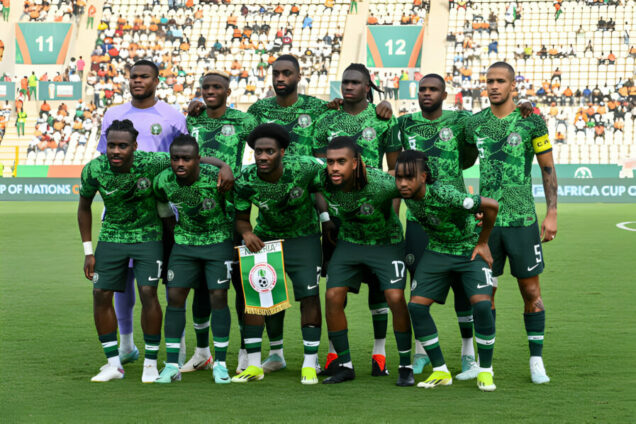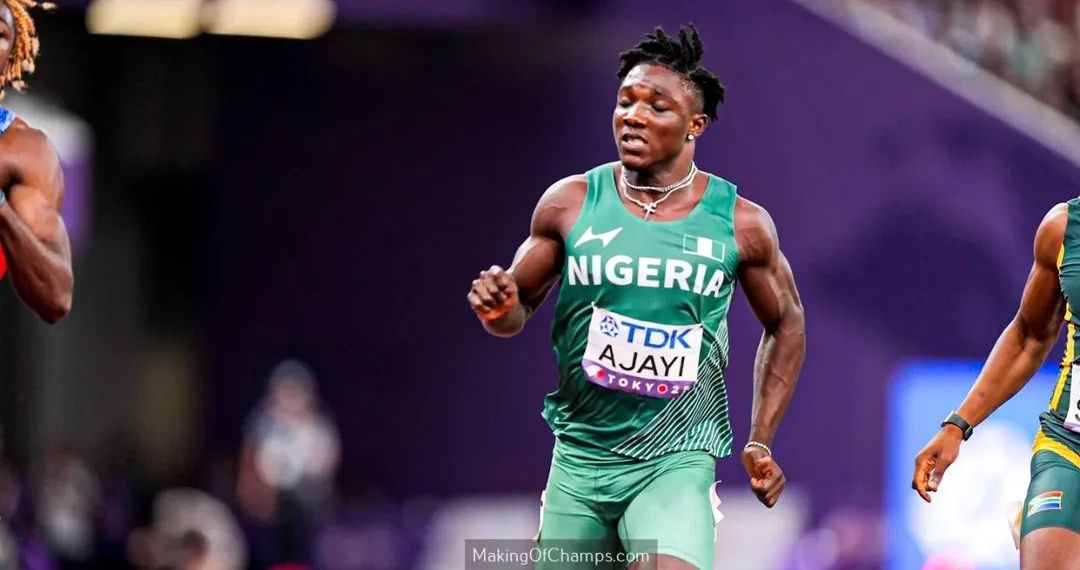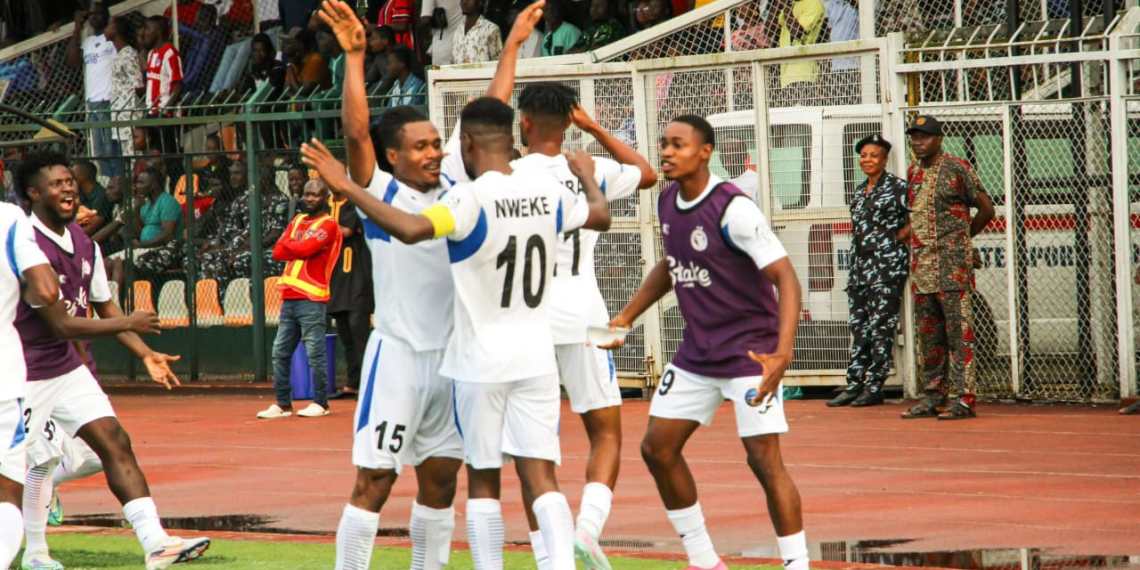Bloemfontein Showdown: Super Eagles’ World Cup Ambitions Hang in the Balance After 1-1 Draw With South Africa
On a cool Tuesday evening in Bloemfontein, the buzzing energy of football was felt from local viewing centers in Lagos to lively spots across Accra and Freetown, as passionate fans gathered to watch the much-anticipated 2026 FIFA World Cup qualifier between Nigeria and South Africa. This crucial clash, which took place at the iconic Toyota Stadium, ended in a 1-1 draw—a result that has sparked intense debate across West Africa and left Nigerian supporters contemplating their team’s prospects in what has become a fiercely contested qualifying group.
Match Context: Super Eagles and Bafana Bafana Collide in High-Stakes Encounter
Heading into the fixture, both Nigeria and South Africa understood the stakes involved. According to data compiled by FIFA and reported by TheCable, South Africa had established themselves as group leaders, with five wins, one draw, and just one loss in their qualifying campaign—a testament to their disciplined approach under coach Hugo Broos. Nigeria, on the other hand, arrived in Bloemfontein with a mixed record of two victories, four draws, and a single defeat, adding further pressure on head coach Finidi George’s squad to deliver a decisive result for their fans back home and across Africa.
First Half Drama: Defensive Blunder and Rapid Response
The match began at a frenetic pace, with both sides eager to assert themselves. South Africa, cheered on by their supporters, seized the opportunity to press high up the pitch. In the 25th minute, the tension in the Nigerian camp reached a fever pitch when defender William Troost-Ekong, reportedly under pressure from South African striker Percy Tau, inadvertently redirected the ball into his own net. As reported by BBC Sport Africa, this own goal gave South Africa the opening goal and set the stadium alight (source: BBC Sport Africa).
Reacting to the setback, Nigerian fans at viewing centers across the country expressed disappointment but urged their team on, recalling famous Super Eagles comebacks in the past. “We’ve seen our boys fight back before. There’s still time,” a supporter in Surulere, Lagos, told NowaHalaZone in a telephone interview.
Bassey Strikes Back: Super Eagles Draw Level Before Halftime
Nigeria gradually grew into the game, finding confidence in midfield and creating attacking chances. The equalizer arrived in the 45th minute, as defender Calvin Bassey capitalized after a goalmouth scramble. According to match reports from Pulse Nigeria and verified by CAFOnline, Bassey pounced on a poor clearance from the South African defense and finished clinically, leveling the score just before the halftime whistle.
Fans and analysts alike noted Bassey’s composure, with some praising his swift adaptability to international football. Local football commentator Deji Omotoyinbo noted live on SuperSport, “That was a goal borne out of persistence—a spirit Nigerians are known for.”
Second Half: Missed Chances and Tactical Battles
Play resumed after the break with renewed intensity. South Africa’s Lyle Foster and Teboho Mokoena orchestrated promising moves, while Nigeria’s Ademola Lookman attempted to unlock the host’s well-structured backline. Spectators in Abuja and beyond held their breath as shot after shot went just wide of the target. Reportedly, Lookman’s pace and creativity troubled the Bafana Bafana defense, but neither side managed to convert their chances into a decisive goal (SuperSport Africa analysis).
The physical nature of the contest led to several bookings, with South African midfielder Teboho Mokoena receiving a yellow card in the 82nd minute, according to the official match summary released by CAF. Both coaches responded with late substitutions, aiming to break the deadlock. South Africa introduced Kamogelo Sebelebele and Thalente Mbatha in the 84th minute, while Nigeria replaced Moses Simon with Samuel Chukwueze, a move that was met with cautious optimism by local pundits.
Final Whistle: What the Draw Means for Nigeria and the Group Standings
After 90 minutes plus added time, the referee blew the final whistle, confirming a 1-1 result. This outcome saw South Africa consolidating their first-place position in the group with 17 points, while Nigeria, despite their efforts, remained in second with 11 points. According to updated standings from Goal.com, the Super Eagles now face a challenging path toward qualification, with only a few games left to overturn the deficit (Goal.com).
Reactions from across Nigeria have been mixed. While some fans believe the team can still recover and qualify, others are calling for immediate improvements in tactics and player selection. Veteran coach Samson Siasia, speaking to Channels TV, remarked, “Nigeria must find their rhythm and focus on the remaining matches. Nothing is lost yet, but urgency is needed.”
Implications for Nigeria, West Africa, and the Global Football Community
For Nigerian football lovers, World Cup qualification goes beyond pride; it’s a matter of national spirit. As seen in previous tournaments, the Super Eagles’ participation brings communities together, boosts local businesses, and inspires young athletes across the region. The stakes are particularly high for the current generation of Nigerian stars, many of whom ply their trade in Europe and are expected to deliver on the continental stage.
Across West Africa, Ghanaian supporters have followed the Nigerian team’s journey with keen interest, given the longstanding football rivalry and camaraderie between both countries. Analysts at GhanaSoccerNet have argued that Nigeria’s fortunes often inspire or motivate fellow West African teams striving for global success.
Globally, the outcome is significant: African representation at the World Cup is a point of pride for the continent and often shapes narratives about the development of football across Africa. If Nigeria were to miss out, it would reportedly be their first absence since the 2006 edition, according to historic records from FIFA.com.
Perspectives, Criticism, and Calls to Action
While the players’ efforts cannot be faulted, critics and supporters continue to debate the team’s tactical formation, player selections, and game management. Some have called for increased investment in grassroots football and homegrown talents, while others emphasize the need for patience as the young squad matures.
Community leader and football advocate Yemi Akinola suggested during a community forum, “Nigeria needs to blend experience with youth and remain united. Every supporter’s voice matters now more than ever.”
On social media, #SuperEagles trended across Nigerian and Ghanaian Twitter, with fans posting their reactions and displaying solidarity with the team ahead of upcoming matches.
Visual Suggestions: A lively photo of a Nigerian fan zone during the match (credit: local photographer), images of key Super Eagles players—William Troost-Ekong and Calvin Bassey—in action (credit: Getty Images), and an infographic showing updated World Cup qualifying standings (source: CAF/FIFA).
Conclusion: What Next for Nigerian Football?
With qualification still within reach, albeit challenging, Nigerian fans and sports stakeholders are looking ahead to the next fixtures. Will the Super Eagles rally and secure their place at the 2026 FIFA World Cup, or will this campaign serve as a lesson for future rebuilding?
What are your thoughts on the Super Eagles’ chances and the future of Nigerian football? Share your views and join the conversation—your perspective is vital for the growth of our game.
Food inquiries: food@nowahalazone.com
General support: support@nowahalazone.com
Story sales/submissions: story@nowahalazone.com
Follow us on Facebook
Follow us on X (Twitter)
Follow us on Instagram










